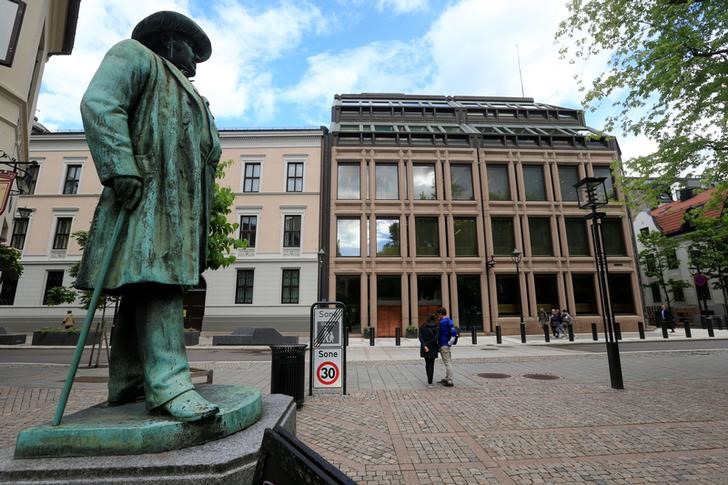(Reuters) - The Norwegian central bank on Wednesday excluded four Canadian oil and gas companies from its $1-trillion wealth fund, the world's largest, for producing too much greenhouse gas emissions, its first use of carbon emissions as a criterion to blacklist firms.
Canadian Natural (NYSE:CNQ) Resources Ltd (TO:CNQ), Cenovus Energy Inc (TO:CVE), Suncor Energy Inc (TO:SU), and Imperial Oil Ltd (TO:IMO) were excluded from the fund due to "unacceptable greenhouse gas emissions", Norges Bank said in a statement https://www.norges-bank.no/en/news-events/news-publications/News-items/2020/2020-05-13-spu.
The decision was based on recommendations from the Council on Ethics, the fund's ethics watchdog, because of the companies' carbon emissions from production of oil to oil sands, the central bank said.
Carbon emissions became a criterion for exclusion from the fund four years ago, and in 2017 the Council on Ethics recommended "a small handful" of firms be blacklisted for producing too much greenhouse gas emissions in either the oil, cement and steel sectors.
Norges Bank also excluded three other companies - Egypt's ElSewedy Electric Co, Brazilian iron ore miner Vale SA (SA:VALE3), and Brazilian power holding Eletrobras (SA:ELET6) - for causing severe environmental damage.
Vale declined to comment, while the four Canadian firms did not respond to requests for a comment after market hours. Eletrobras and ElSewedy could not immediately be reached.
The central bank said it took a long time to sell shares of several of the blacklisted companies in a reasonable manner due to the "market situation, including liquidity in individual shares."
The fund, formally called the Government Pension Fund Global and set up in 1996 to save petroleum revenues for future generations, has grown to almost three times Norway's annual gross domestic product, far exceeding original projections.
